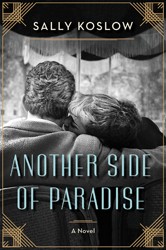By
– August 25, 2011
The final book in Jonathan Rabb’s Berlin Trilogy, The Second Son depicts a devoted father’s quest to find his missing son at a remarkable moment in history: the eve of Germany’s 1936 Olympics and the outset of the Spanish Civil War. Nikolai Hoffner, a widower and former high-ranking member of the German police, sets off for Barcelona in hopes of reuniting his son, Georg, with Georg’s wife and young son. Hoffner was recently stripped of his post as Chief Inspector when it was discovered that he was half-Jewish. Ironically, though, Hoffner’s other son, Sascha, has already joined the Nazi party despite his Jewish heritage and despite the horrors of the Nazi regime. Hoff — ner’s journey, then, is both a battle to get his son back, and also a metaphorical confrontation against all of the tyranny and terror about to boil over. Hoffner’s search takes him along the anarchic yet still somewhat romantic Spanish countryside, replete with colorful characters who possess varying degrees of morality.
A hybrid of war fiction and detective story, Rabb presents each historical detail with accuracy and vividness. Our protagonist, Hoffner, is easy to root for, even if you’re new to the series. His increasingly desperate struggle unfolds with all of the tension, darkness, and emotion that a tale of this magnitude deserves.
A hybrid of war fiction and detective story, Rabb presents each historical detail with accuracy and vividness. Our protagonist, Hoffner, is easy to root for, even if you’re new to the series. His increasingly desperate struggle unfolds with all of the tension, darkness, and emotion that a tale of this magnitude deserves.
Phil Sandick is a graduate of the University of Pennsylvania and the University of Wisconsin-Madison. He has taught courses in literature, composition, and creative writing since 2006. Phil is currently studying rhetoric and composition at the University of North Carolina-Chapel Hill.





